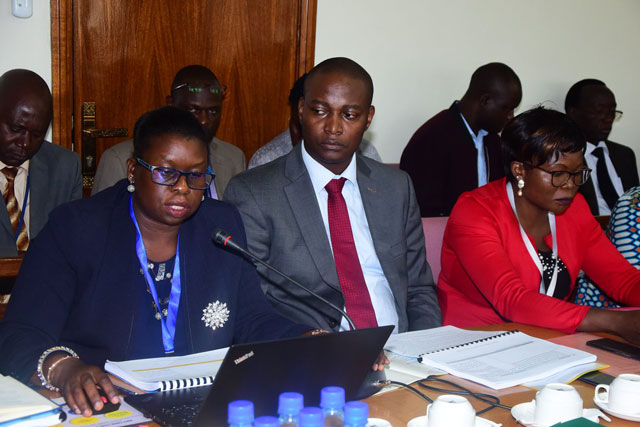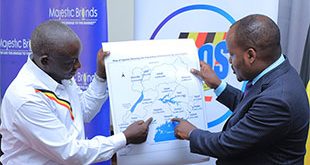
Kampala, Uganda | THE INDEPENDENT | The Commissioner-General of Uganda Revenue Authority (URA) Doris Akol has downplayed accusations that the tax body caused losses to businesses by retaining taxes paid for goods that are destroyed after failing to meet standards.
Akol was summoned by Parliament’s Committee on Commissions, Statutory Authorities and State Enterprises (COSASE) to explain the process of collecting taxes on goods and the process of verification of standards. This followed a petition by 3,000 traders claiming losses following the destruction of their goods for poor standards even after paying taxes.
Akol explained that URA operates under a coordinated border management system that includes all agencies involved in the regulation of imports like the National Drug Authority (NDA) and Uganda National Bureau of Standards. She, however, added that customs take precedence and are collected at the frontier ports in Mombasa and Dar-es-salaam, where taxes have to be paid before entry into the country.
Akol indicates that this system is enforced through the National Electronic single window where all agencies engaged in the regulation of imports can simultaneously facilitate and control trade. She said that goods that have failed to obtain a pre-verification of exports certificate from the country of origin are red-flagged.
Under cross-examination led by Kampala Central MP Mohammed Nsereko, Akol insisted that once goods are declared sub-standard an importer can file an application for a refund of import taxes within 12 months after the destruction of the goods.
Nsereko says that many businesses people do not know the legal regime to seek a refund of taxes for destroyed goods and that also the period stipulated for refund is long.
But, according to Akol, URA and all the other agencies follow the regular process requiring an application for a refund in 12 months after goods are destroyed.
Katikamu North MP Abraham Byandala and Budadiri East MP Vincent Woboya tasked Akol to show proof of amounts that have been refunded within the last two years. However, she appealed for more time to provide a list.
COSASE vice chairperson Ibrahim Kasozi wondered whether URA and UNBS were doing their job right given that 54 percent of the goods on the market are substandard. He asked whether the public is sensitized on procedures followed to certify goods and penalties.
Akol said that they usually have sensitization seminars especially with KACITA and other business associations where they raise and explain different issues concerning taxes and standards.
******
URN
 The Independent Uganda: You get the Truth we Pay the Price
The Independent Uganda: You get the Truth we Pay the Price



